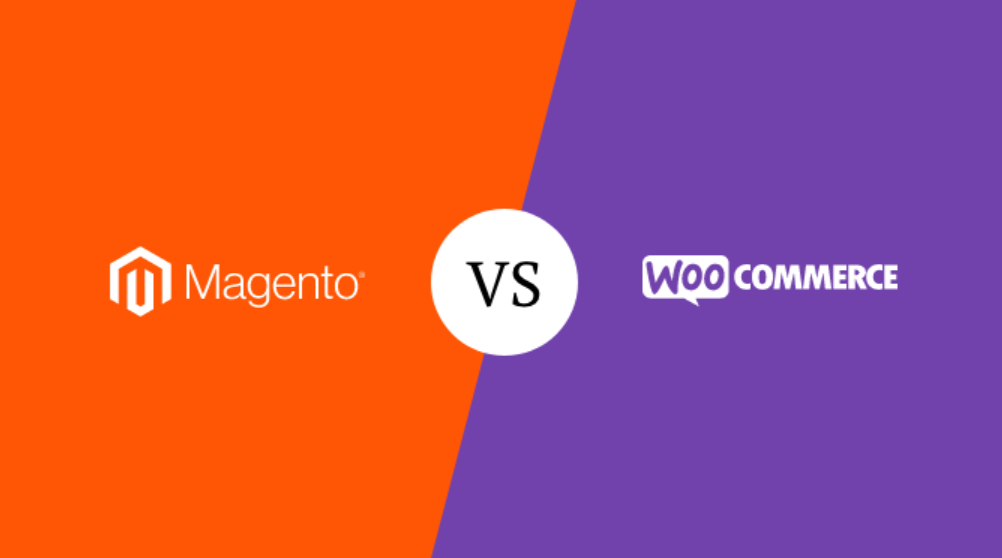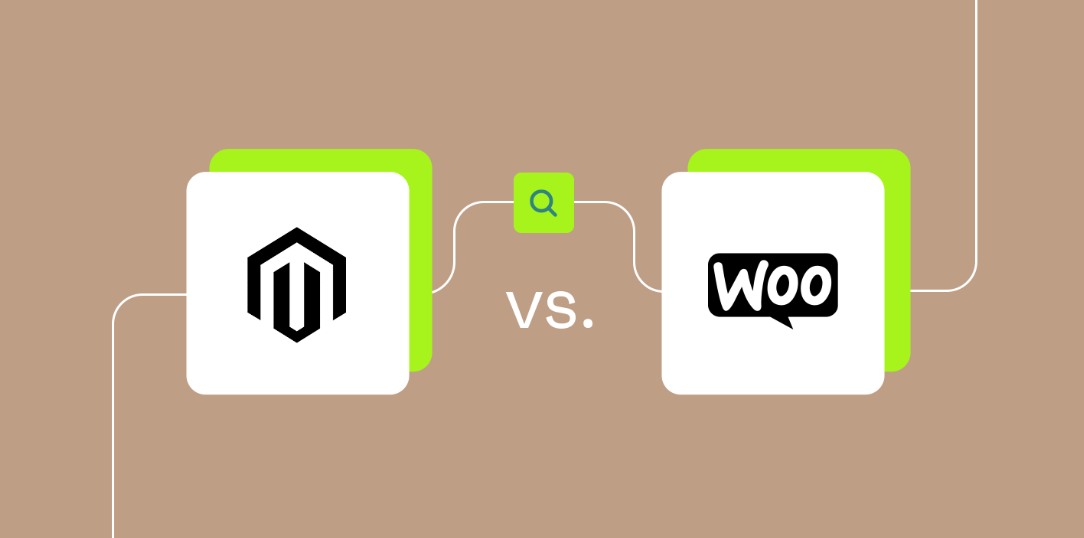When it comes to starting an online business, choosing the right platform is crucial for success. Two popular options that often come up in the conversation are Woocommerce and Magento. Both platforms have their own set of features and benefits, so how do you decide which one is best for your business venture? In this blog post, we will delve into the differences between Woocommerce and Magento to help you make an informed decision for your online business.
Understanding the Basics of Woocommerce and Magento
Woocommerce is a very flexible plugin for the WordPress site that transforms normal websites into productive e-commerce businesses. The core feature of this platform is an easy interface, allowing small businesses and novices to enjoy the process of managing their online stores. The platform is all about easing the use and users do not need to get into technical complexities to sell online since the path is made simple.
While Magento provides itself as an all-inclusive online store platform with a strong focus on scalability and customization. This platform is the right environment for large firms or organizations that are ready for quick expansion; a robust framework capable of handling numerous product inventories and high traffic volumes. On the contrary, Magento is an independent shopping platform that is not managed through any content management system and has an assemblage of different features intentionally built to create a rich user experience and customization.
Likewise, both channels provide efficient support of e-commerce operations with features such as inventory management, secure payment processing, and customer service, but target different types of entrepreneurs: from small and just-starting businesses to more experienced users with higher expectations.
Ease of Use: Which Platform Is More User-Friendly?
Setting up and running an online store can be overwhelming to most people, so the ease of use of one platform over the other plays a big role in what is preferable between WooCommerce and Magento. Woocommerce really areas in this section since WordPress, the platform that a lot of people know, has some degree of integration with it. Being well acquainted with WordPress is an evident benefit of this since users can tap upon their existing expertise to deal with their e-commerce site smoothly. The platform’s dashboard and settings are designed with user experience in mind, enabling even those with minimal technical skills to handle the operational aspects of their online store with confidence.
Conversely, Magento’s robust feature set and customization options come with a more complex interface that might challenge beginners. Being that the platform has many features, might need a developer to fix the store and customize these tasks. Hence, Magento is not something the novices or small businesses with limited money to employ external help can do easily.
Therefore, for individuals and small businesses seeking a straightforward path to launching and managing their e-commerce operations, Woocommerce presents itself as the more user-friendly choice. Its intuitive design and ease of integration with WordPress make it a go-to for those aiming to minimize the learning curve associated with setting up an online store.
Customization Capabilities to Fit Your Business Needs
In the realm of e-commerce, the ability to tailor your online store to align perfectly with your brand and customer needs is non-negotiable. WooCommerce has succeeded with already very strong personalization options, based on its open-source principles. This change allows store owners to integrate a phenomenal variety of themes and functionality plugins into their websites in addition to the growth of their business by this means. The platform’s ability to make changes easily is a great thing for those creators, who have a purpose to test some features out without dealing with the limitations of determinism.
On the other hand, the methodology Magento follows for the customization is very broad and very deep which is the best for the personalized websites. It stands out for its unparalleled ability to offer detailed customization at every level— from the user interface to the core functionalities. It creates the necessity of them, and thus choice grows for the businesses that have individual, often complicated needs, which retail cannot offer. The complexities of a growing online store is what Magento has as its strength. This capability could be used to tailor a personalized shopping system in which an online shop owner could be manipulated to fit into the strategies of their business and the tastes of their customers which keep on changing.
Both company and customer platforms perform different functions in customization, thus allowing businesses an opportunity to set a distinct e-commerce presence with consistent tones and operational structure.
Scalability: Preparing for Business Growth
As your online venture takes off, ensuring your chosen e-commerce platform can handle increased demand and complexity is key. Woocommerce, with its adaptability and WordPress foundation, caters well to the evolutionary needs of small to medium-sized businesses. It is used as a growth enabler that allows the addition of useful features from plugins and extensions. Since Woocommerce is scalable, when your customer base and products grow, your system swaps to Woocommerce without needing an additional platform.
Magento, in contrast, is built with scalability at its core. Its architecture is designed to manage substantial increases in products and traffic right from the start. The Magento platform for resolving the performance and scalability issues seen in businesses that have a sharp and extended growth trajectory is robust. Its capability of treating complicated product catalogs as well as high traffic loads proficiently can make it a strong case for big enterprises or those pursuing an aggressive expansion strategy.
However, the degree of scalability of your digital commerce infrastructure will determine whether your business will grow or not, and also how well you will compete in the online marketplace. It doesn’t matter if you are inclined to Woocommerce flexibility or the powerfulness of Magento; you should select a program that matches your growth projections to achieve future success.
Security Features to Protect Your Online Store
It is crucial today, more than ever, to protect your internet shopping site against the hazards of data leaks. Woocommerce and Magento both provide tough security features that protect your store against a hacking threat. The security plugins give the platform an added advantage since it is part of the WordPress ecosystem due to which the users can integrate multiple security plugins which in turn guard your website from hacking, viruses, etc. For example, these plugins can help to run security scans regularly, set and enforce strong rules for passwords, and in real-time, the suspicious activity monitoring, which will make store owners and customers worry less.
Magento again comes into focus via its stringent security procedures. It, on the other hand, offers security suites within the platform, including time-released patches that target vulnerabilities instantly. Product offerings with services like secure payment gateways, automated security patches, and personalized access controls grant business owners trustworthy platforms that allow them to observe continuous high levels of security. The importance that Magento attaches to security becomes apparent when one considers their proactive manner towards updates and the fact that the community has taken the view to quickly identify and put such concerns to rest.
They emphasize that security is at the core of trustworthy online commerce and provide security tools and ways of being used for business owners to secure their websites accordingly. Implementing strong security features reduces a company’s worry about innovations, developments, and customer service, with secure e-commerce infrastructure being the foundation for their operations.
Support and Community Resources for When You Need Help
Navigating the complexities of an e-commerce platform can occasionally present challenges that require external support or advice. To the Woocommerce users, a vivacious and spacious community offers, experienced users and developers volunteering to share their views, troubleshoot problems, and extend customization tips that will drive the capability of your online store. Accessibility is achieved through different forums, social media groups, and specialized online platforms, which means help is at your disposal anytime.
The opposition of the coin is that Magento has a solid support community that consists of developer community professionals, user forums, and extensive documentation. As a peer-to-peer community that is invaluable, they assist with the technical aspect of the product and provide solutions, advice on best approaches and strategies, as well as the best ways to use the complete Magento functions.
Besides, the company has channels of communication which in case of critical problems include professional and technical advice. As a result of this, we can be assured that the users of Magento have not been left stranded with complex problems. Whether you’re part of the Woocommerce or Magento family, the assurance of a supportive community and reliable resources means you’re well-equipped to navigate the journey of running an e-commerce business.
Pricing and Overall Costs Involved
Assessing the financial implications of your e-commerce platform choice is pivotal, with Woocommerce and Magento presenting contrasting models. Woocommerce, fundamentally a free plugin for WordPress users, appeals to those aiming to establish an online store with minimal initial investment. This affordability is particularly relevant to small businesses and startups, but one should remember that the extra charge for new plugins and themes can appear in the long run.
On the other hand, Magento is more expensive and the prices are related basically to its advanced capabilities devoted to scalability and customization. This platform may introduce licensing fees, alongside hosting and maintenance costs, which are notably higher but justified by its capacity to support large-scale e-commerce operations.
The fact that Magento’s offerings position the company either for small business growth or for those already working on a large scale can be interpreted as the route for future scaling. Thus, while initial and ongoing costs are vital, aligning your platform choice with your business’s growth trajectory and feature requirements will ensure that your investment delivers value over time.


